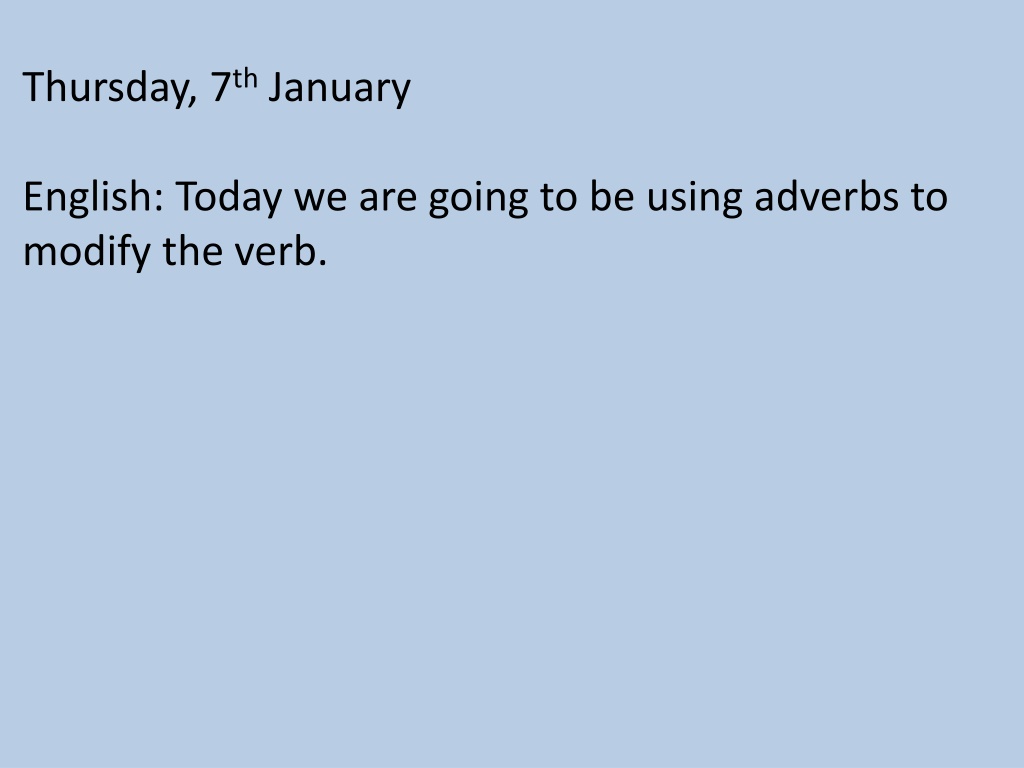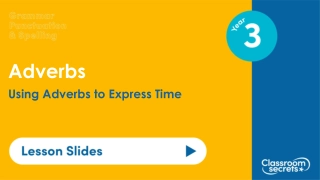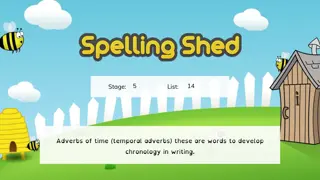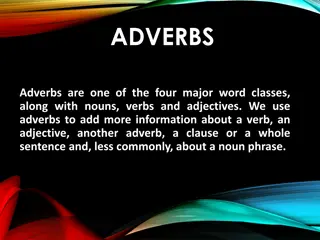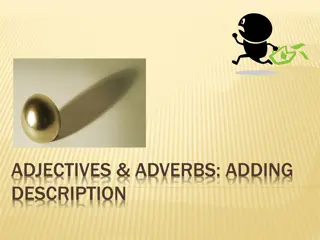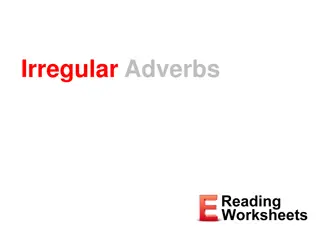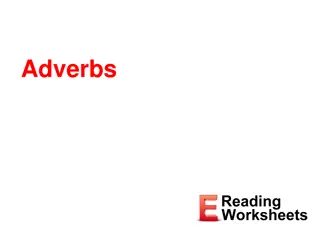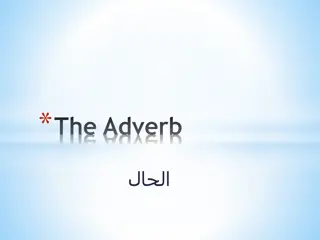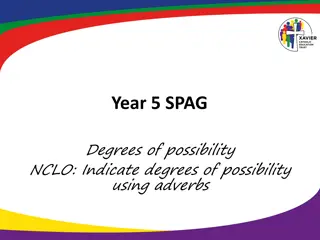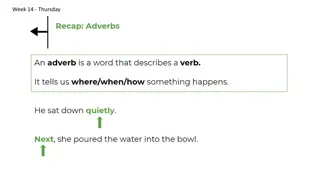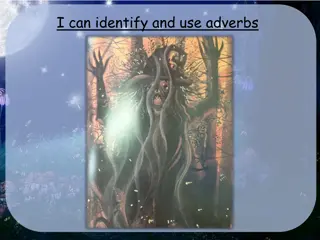Understanding Adverbs by Using Them in Sentences
Learn about adverbs and how they modify verbs through examples and exercises. Practice identifying adverbs in sentences and create your own sentences using adverbs to describe actions. Enhance your English language skills in a fun and interactive way.
Download Presentation

Please find below an Image/Link to download the presentation.
The content on the website is provided AS IS for your information and personal use only. It may not be sold, licensed, or shared on other websites without obtaining consent from the author. Download presentation by click this link. If you encounter any issues during the download, it is possible that the publisher has removed the file from their server.
E N D
Presentation Transcript
Thursday, 7th January English: Today we are going to be using adverbs to modify the verb.
Review: Copy and underline the subordinate clause in the sentences below: (Remember the subordinate clause includes a subordinate conjunction I SAW A WABUB, and doesn t make sense by itself). As she was tired, we went to bed early. He went for a walk, before it got dark. Answer on the next page.
Review answers: As she was tired, we went to bed early. He went for a walk, before it got dark.
What is an adverb? Could you write a definition in your book? Could you use one in a sentence to show how it is used? What special spelling rule is used for adverbs?
Adverbs are ly words that can be used to modify the verb. A verb is a doing word, so an adverb tells us how something is being done, for example: Charly nervously turned the generator on. Turned is the verb (doing word) Nervously is the adverb it tells us how Charly turned the generator on.
Can you copy each sentence into your books, highlighting and identifying the verb (doing word) and the adverb (ly word that describes the verb) in each: 1. Charly curiously wondered why the generator wasn t working. 2. Bob-E carefully fixed the generator. 3. Charly happily watched the generator begin to work. 4. Flying dramatically in slow motion, Bob-E saved Charly from the incoming screw. 5. Hugging lovingly, Charly thanked Bob-E for saving the day. Answers on the next page.
Answers: Blue= verb Green = adverb 1. Charly curiouslywonderedwhy the generator wasn t working. 2. Bob-E carefully fixed the generator. 3. Charly happily watched the generator begin to work. 4. Flying dramatically in slow motion, Bob-E saved Charly from the incoming screw. 5. Hugging lovingly, Charly thanked Bob-E for saving the day.
Rewatch light : https://www.literacyshed.com/light.html Now it s your turn! I d like you to write your own sentences about the Light story, using adverbs to modify the verb. You might want to write the story in order of what happens.
Plenary: Can you change my choice of adverb to change the tone of the sentence? Charly nervously checked the generator.
